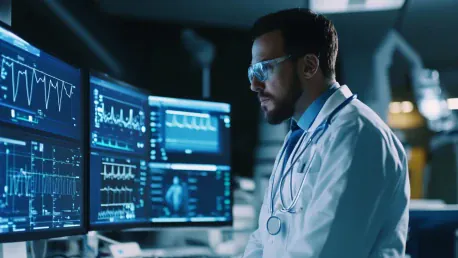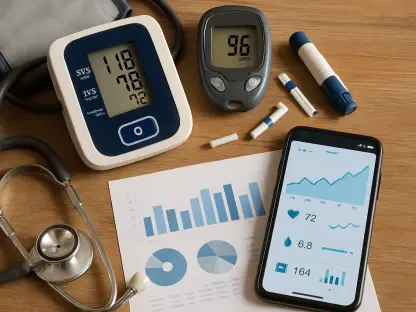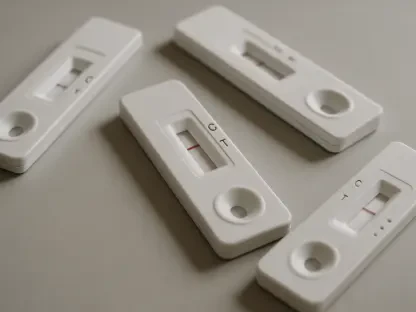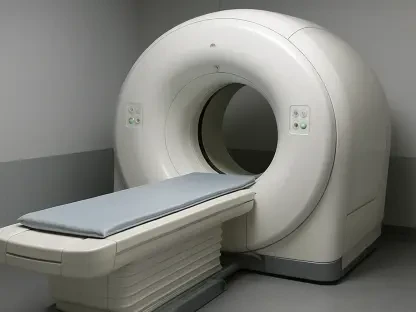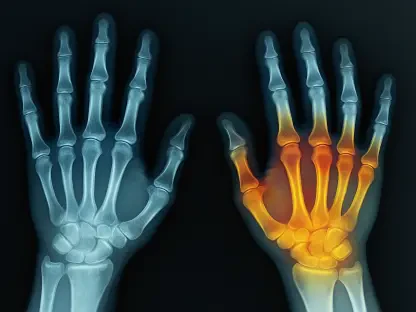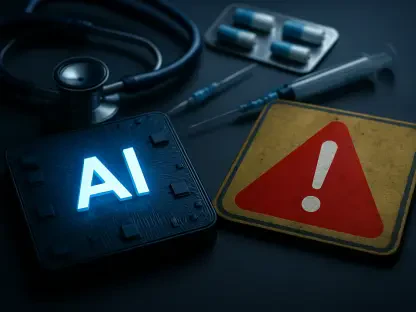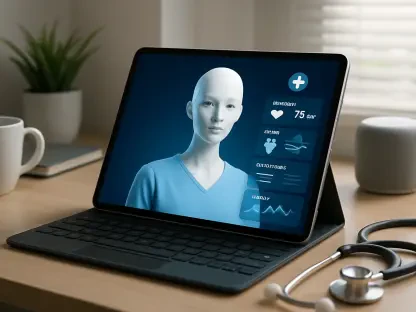Revolutionizing NHS with HealthTech: A New Era in Preventive Care
The National Health Service (NHS) in the UK is contending with numerous formidable challenges, such as escalating demand, stringent budget constraints, and an increasing prevalence of chronic diseases. In light of these issues, preventive healthcare has become a cornerstone strategy to mitigate these burdens and offer better value for taxpayers. Health technology (HealthTech) is at the forefront of this transformation, providing cutting-edge solutions to anticipate, detect, and manage health issues before they spiral out of control. As the NHS undergoes this pivotal shift, HealthTech is bringing about fundamental changes in how healthcare is delivered and experienced in the UK.
The Role of HealthTech in Early Detection and Diagnosis
HealthTech’s capacity for early detection and diagnosis forms one of its most impactful contributions to the healthcare landscape. By identifying health conditions at the nascent stage, the technology helps prevent complications that could otherwise lead to expensive and extensive hospital admissions. Innovative tracking devices, developed by the Health Tech Alliance members, provide intelligent, highly personalized data to clinicians and patients remotely. This significantly aids early intervention and aligns perfectly with the NHS and the UK Government’s objectives of slashing waiting times and enhancing access to vital healthcare resources.
Remote monitoring and wearable devices stand out as particularly noteworthy in managing chronic conditions. In the UK alone, approximately 7.2 million individuals live with chronic kidney disease, comprising more than 10% of the population. Additionally, 4.4 million citizens are affected by diabetes, including over 1.2 million who suffer from undiagnosed type 2 diabetes. Remote monitoring devices play a crucial role in aiding these individuals to manage their health more effectively and identify potential problems early on. Self-monitoring wearables and home monitors empower patients to keep track of essential vital signs such as heart rate, blood pressure, glucose levels, and arrhythmias. By offering real-time data and alerts, implantable devices like pacemakers, defibrillators, and continuous glucose monitors enable both patients and healthcare providers to take prompt action, thus preventing conditions from escalating to a point where hospitalization becomes necessary.
The comprehensive use of HealthTech in remote monitoring alleviates the strain on hospital resources by ensuring that beds are available for truly urgent cases. When patients can manage their conditions effectively from home, the healthcare system becomes more efficient and focused on providing timely care for those in critical need. As such, the integration of HealthTech into the NHS is not merely a technological enhancement but a fundamental shift towards a more sustainable and proactive healthcare model.
Advancements in Minimally Invasive Interventions
Significant strides have been made by HealthTech in the realm of minimally invasive interventions, showcasing the tremendous potential of this technology. Equipment used throughout early detection, diagnosis, and surgical stages leads to treatments that are less invasive and pose fewer risks to patients. Medical devices and surgical robots facilitate these minimally invasive procedures, making early diagnostics and interventions possible, ultimately preventing the progression of diseases to more severe stages.
Robotic devices, in particular, have revolutionized the field by allowing surgeons to perform intricate procedures with heightened precision, smaller incisions, and greater control. This leads to reduced trauma, shorter recovery times, and a minimized risk of complications. For instance, the da Vinci Surgical System, esteemed for its minimally invasive approach, allows for complex procedures such as prostatectomies, cardiac valve repair, and renal and gynecologic surgeries. The precision and capabilities of such robots enable surgeons to achieve outcomes that were previously unimaginable with traditional surgical methods. Consequently, patients benefit from quicker recoveries and fewer postoperative complications, which translates into lower healthcare costs and improved quality of life.
Another exemplary innovation in this domain is CMR Surgical’s Versius, a modular and portable surgical robot designed to fit seamlessly into most operating rooms. By maximizing clinical workflows and schedules, Versius allows for a laparoscopic approach tailored to each patient’s unique needs. This customization ensures that patients receive care that is not only minimally invasive but also aligned with their specific health requirements. As these advancements in minimally invasive interventions continue to evolve, they promise to reshape surgical practices and enhance patient outcomes significantly.
Personalized Treatments and Predictive Analytics
The future of healthcare is increasingly leaning towards personalized treatments, a trend that HealthTech is rapidly accelerating. Advances in technology now make it possible to tailor interventions to the unique needs of each patient, utilizing genetic information, lifestyle data, and other personal health metrics. Predictive analytics play a crucial role in this transformation, enabling the identification of high-risk individuals and facilitating proactive monitoring and preventative measures.
For example, genetic testing can unveil predispositions to various illnesses, such as cancer or heart disease, prompting early intervention long before symptoms become apparent. This approach to medicine ensures that treatments are not just reactive but thoughtfully preemptive. Furthermore, data analysis and risk prediction, powered by the continuous advancements in Artificial Intelligence (AI) and Machine Learning (ML), are becoming integral aspects of HealthTech. Efficient data collection systems adopted by the NHS leverage these technologies to forecast potential health issues and recommend personalized interventions. This proactive approach has the potential to significantly improve health outcomes and provide more precise and effective care.
One of the most compelling aspects of this technological evolution is its ability to shift healthcare from a reactive model to a preventive one. By addressing health conditions at their inception, HealthTech reduces the need for more drastic and costly medical interventions. Predictive analytics not only help in identifying individuals at risk but also guide the NHS in allocating resources more efficiently, resulting in more targeted and effective healthcare delivery. This evolution underscores the importance of integrating advanced data collection and analysis tools within the NHS to fully realize the potential of preventative healthcare.
Overcoming Barriers to HealthTech Integration
The National Health Service (NHS) in the UK faces significant challenges, such as increasing demand, tight budget limits, and a rise in chronic diseases. To confront these issues, preventive healthcare has emerged as a crucial strategy to lessen these pressures and provide better value for taxpayers. Health technology (HealthTech) is leading this transformation with innovative solutions that can predict, detect, and manage health problems before they become severe. Amidst this vital shift, HealthTech is revolutionizing the way healthcare is delivered and experienced in the UK.
HealthTech includes everything from advanced diagnostic tools to wearable devices that monitor vital signs. These technologies enable early intervention, which can significantly reduce the long-term costs of healthcare by preventing severe conditions from developing. Additionally, HealthTech fosters more personalized care, allowing doctors to tailor treatments based on individual patient data. As such, the adoption of HealthTech is not just a trend but a fundamental change that has the potential to enhance the quality of care, improve patient outcomes, and make the NHS more efficient and sustainable for the future.
